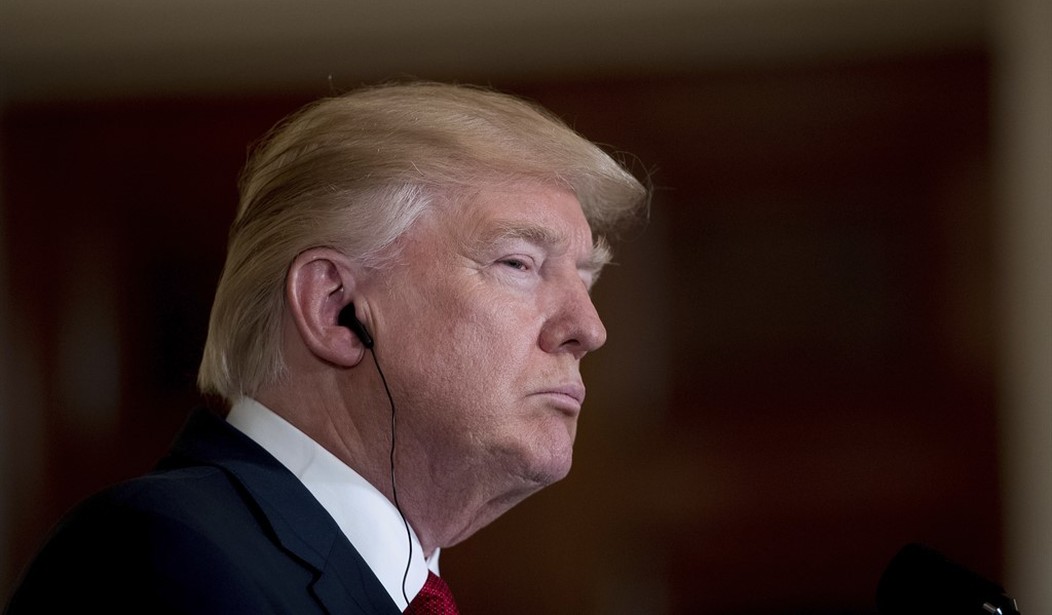Fact check: Mostly true.
https://twitter.com/realDonaldTrump/status/855373184861962240
Why do we continue to use this stupid benchmark? It’s a tradition, Jeff Greenfield allows, one that tells us … almost nothing useful about what’s to come:
The inane 100 days tradition is rooted in the breathless start of FDR’s presidency in 1933. As New Deal historian Adam Cohen recalls, “dire” does not begin to describe conditions. With banks collapsing by the hour, “people who came down for the inauguration literally could not pay their bills when they were checking out of their hotels. The banking system had collapsed. Unemployment was at 25 percent. The stock market had plunged. So everyone agreed that there had to be bold action.”…
Look back on any presidency you choose [after FDR’s], and what are the chances that the first 7 percent of its first term offered a useful guide to the rest? As my former colleague Dan Rather would have put it, “slim and none and Slim has just left town.”…
Did Nixon’s first 100 days offer a clue that he would be toasting the health of Mao Zedong in Beijing a few years later? That Ronald Reagan would be strolling through America with the leader of the Soviet Union? That Barack Obama, who led his party to a smashing triumph in 2008, would preside over the implosion of the party at every level over the next eight years?
Especially in an era of intense partisan polarization, odds are high that unless a president begins his term with a filibuster-proof majority in the Senate, not much is getting done domestically in the first hundred days. (Foreign policy may be different, as our brief recent adventure in Syria proves.) On top of that, you’ve got a governing party in Washington torn three ways between a nationalist president, business-class establishmentarians, and Freedom-Caucus-style fiscal conservatives. It’d be hard enough to get health care passed with 52 votes in the Senate even if the party was united. When it isn’t, you get what we’ve got now — a few executive orders, a big Supreme Court confirmation, some noteworthy lunges on foreign policy, and not much else.
Trump, the great non-traditionalist, could have pointed all of that out last year on the trail and warned Americans to keep their expectations for the pace of change realistic if he was elected. In practice, no candidate for the world’s most important job would risk peeing on his voters’ enthusiasm by hinting that reform might not come quickly if he wins, particularly a populist like Trump who was running as a swamp-draining superhero. The entire appeal of his candidacy was that he’d impose his will, in alpha-male fashion, on all the beta losers in Washington, never mind the procedural logistics of getting things passed in Congress.
And so we’re left this afternoon with the absurdity of the president grumbling about the “ridiculous” concept of the hundred days after having tweeted stuff like … this last year:
https://twitter.com/realdonaldtrump/status/790712761407926272
Here is Trump's – signed! – "100-day action plan" pic.twitter.com/zHQV0o3WPl
— Will Jordan (@williamjordann) April 21, 2017
He tweeted out a video on November 22, two weeks after his victory, to update Americans on his “policy plans for the first 100 days.” Usually when he’s caught in an act of hypocrisy related to something he’s said in the past it has to do with a stance taken by Obama, not a stance taken by, er, himself just a few months before.
Also, while it may be true that “almost nothing useful” is learned in a president’s first hundred days, it’s not quite true that the benchmark is meaningless. Interesting point by WaPo:
Presidents who failed to sign any major piece of legislation in the first 100 days — especially presidents whose parties also controlled Congress — have sputtered in their first couple of years, too, said Brooklyn College history professor and presidential scholar Robert David Johnson…
“There really aren’t a lot of examples — zero — of presidents who substantially struggled in the 100 days and then quickly rebounded,” Johnson said.
A comparable parallel, Johnson said, was President Jimmy Carter, who struggled to whip up excitement within a Democratic-controlled Congress for pretty much anything, his first 100 days and beyond. He signed an energy bill a year and a half in, but it wasn’t what he wanted, and that “pretty much sucked the oxygen out of his presidency.”
There are ways Trump could break that mold. Anything that can be done via reconciliation in the Senate can be passed on a pure party-line vote, without Democratic help, and if the GOP picks up seats in 2018, the combination of Republicans and red-state Dems in the upper chamber could give Trump 60 votes for key legislation. But that’s a heavy lift, especially with his job approval in the low 40s. With Democrats in “obstruct at all costs” mode, Trump’s presidency is far more likely to be consequential on foreign policy than domestically. Hey — there’s still time for war with North Korea and Iran before next Saturday’s 100-days milestone is reached.
Here’s CNN having some fun at his expense.








Join the conversation as a VIP Member